Site Reliability Engineer Cover Letter Examples

May 29, 2025
|
12 min read
Unlock your potential with our site reliability engineer cover letter tips, designed to make you the 'uptime' candidate every employer seeks. Connect your skills to stability, ensuring your application resonates with clarity and precision.
Rated by 348 people
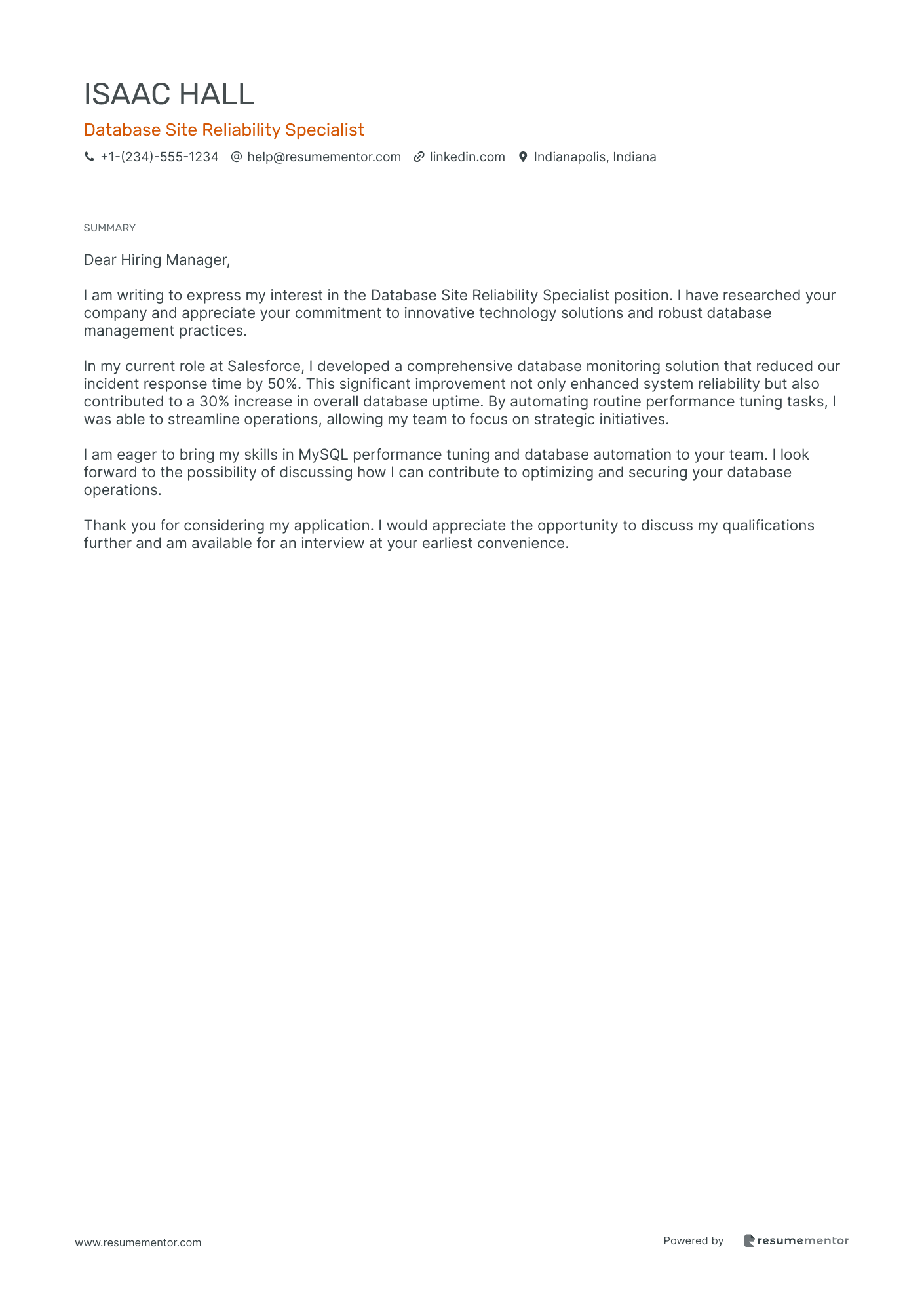
Database Site Reliability Specialist
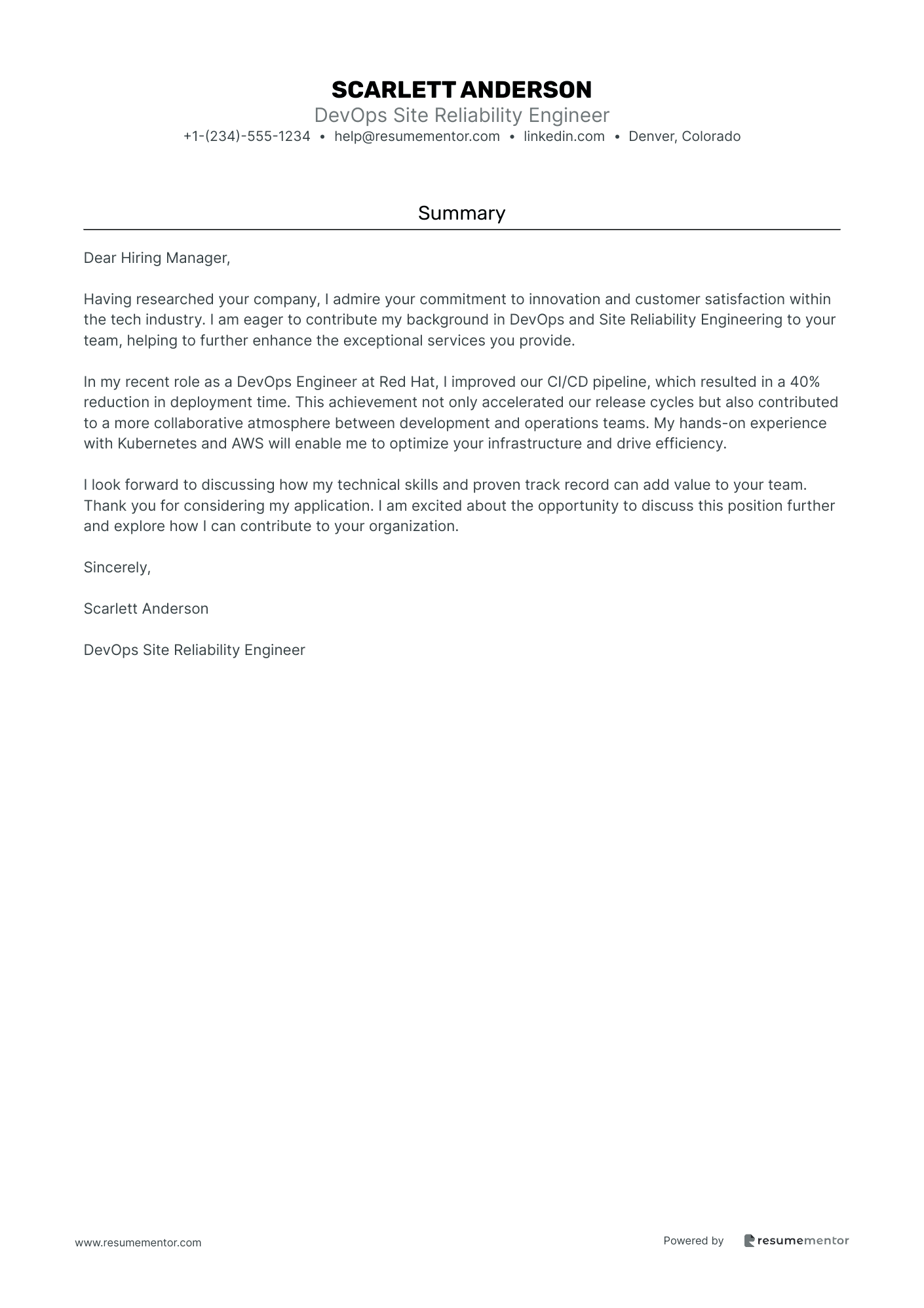
DevOps Site Reliability Engineer
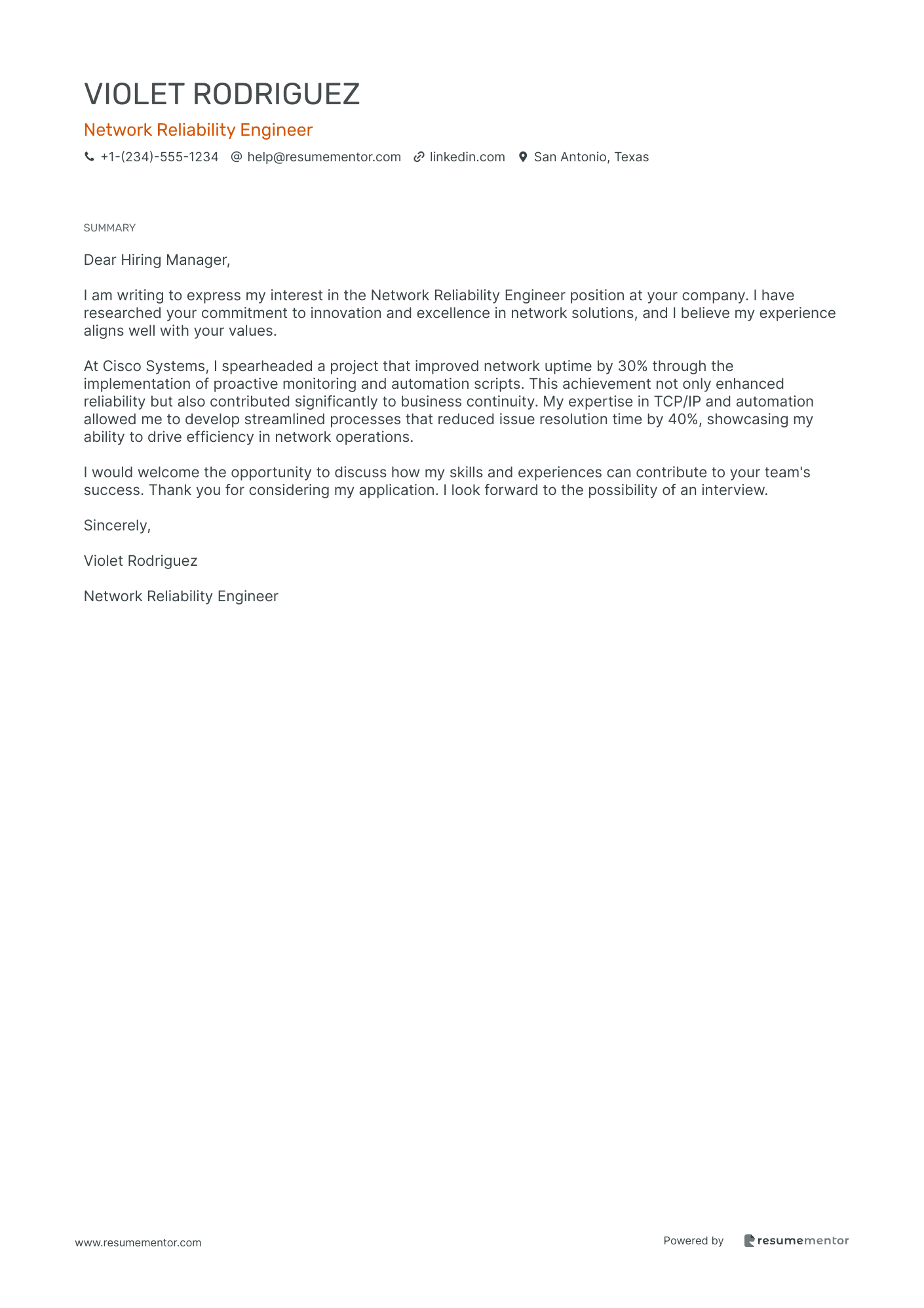
Network Reliability Engineer
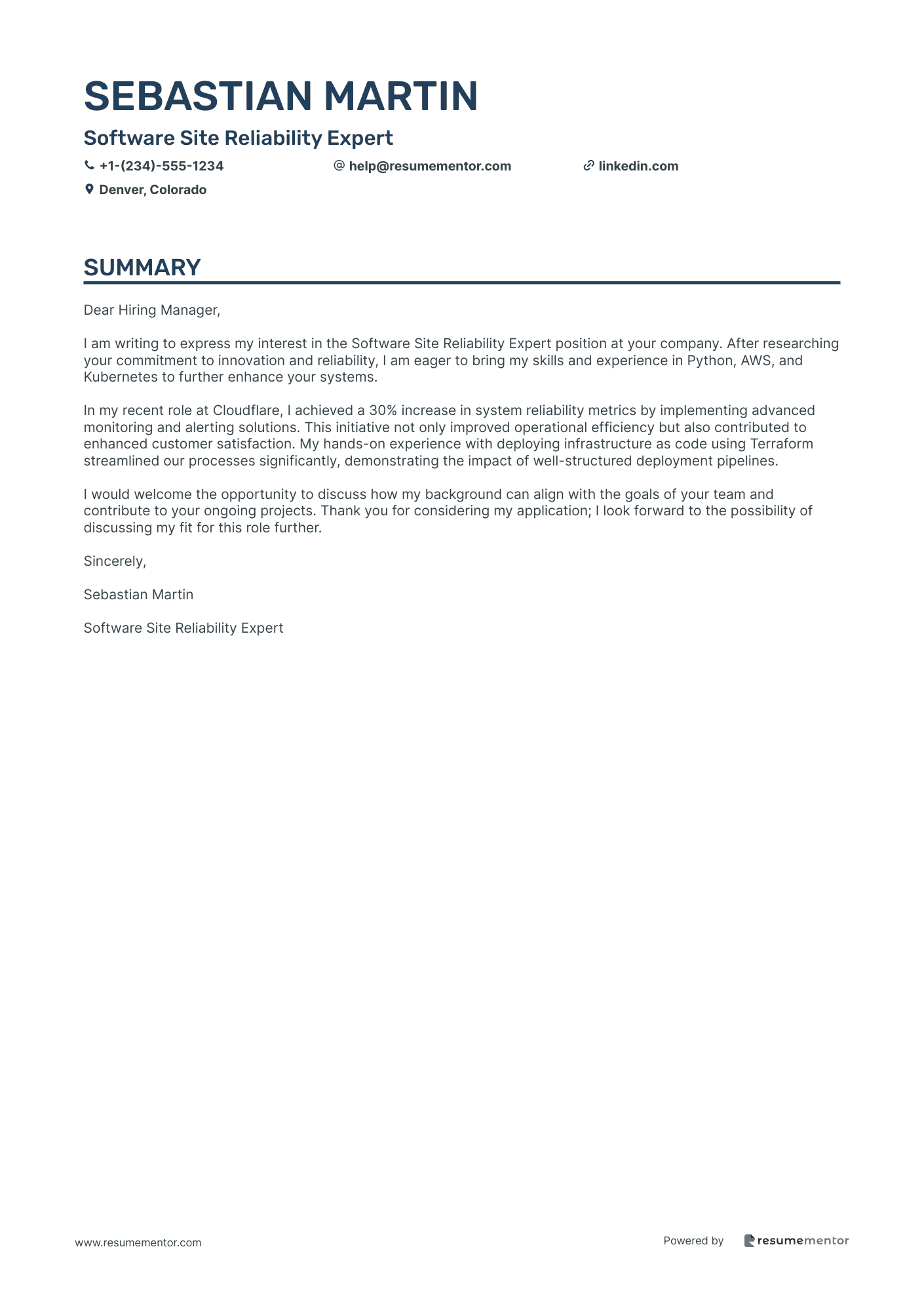
Software Site Reliability Expert
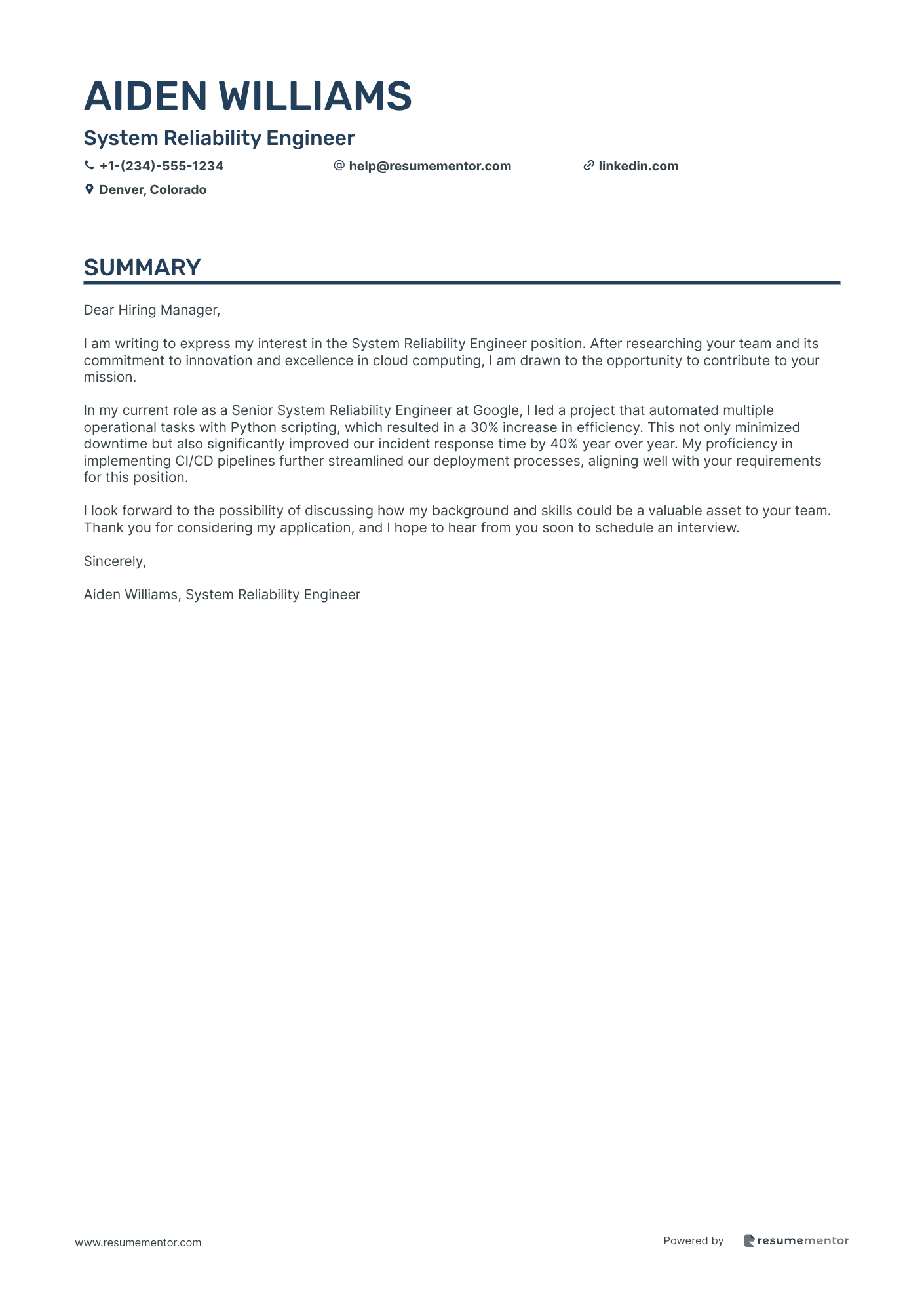
System Reliability Engineer
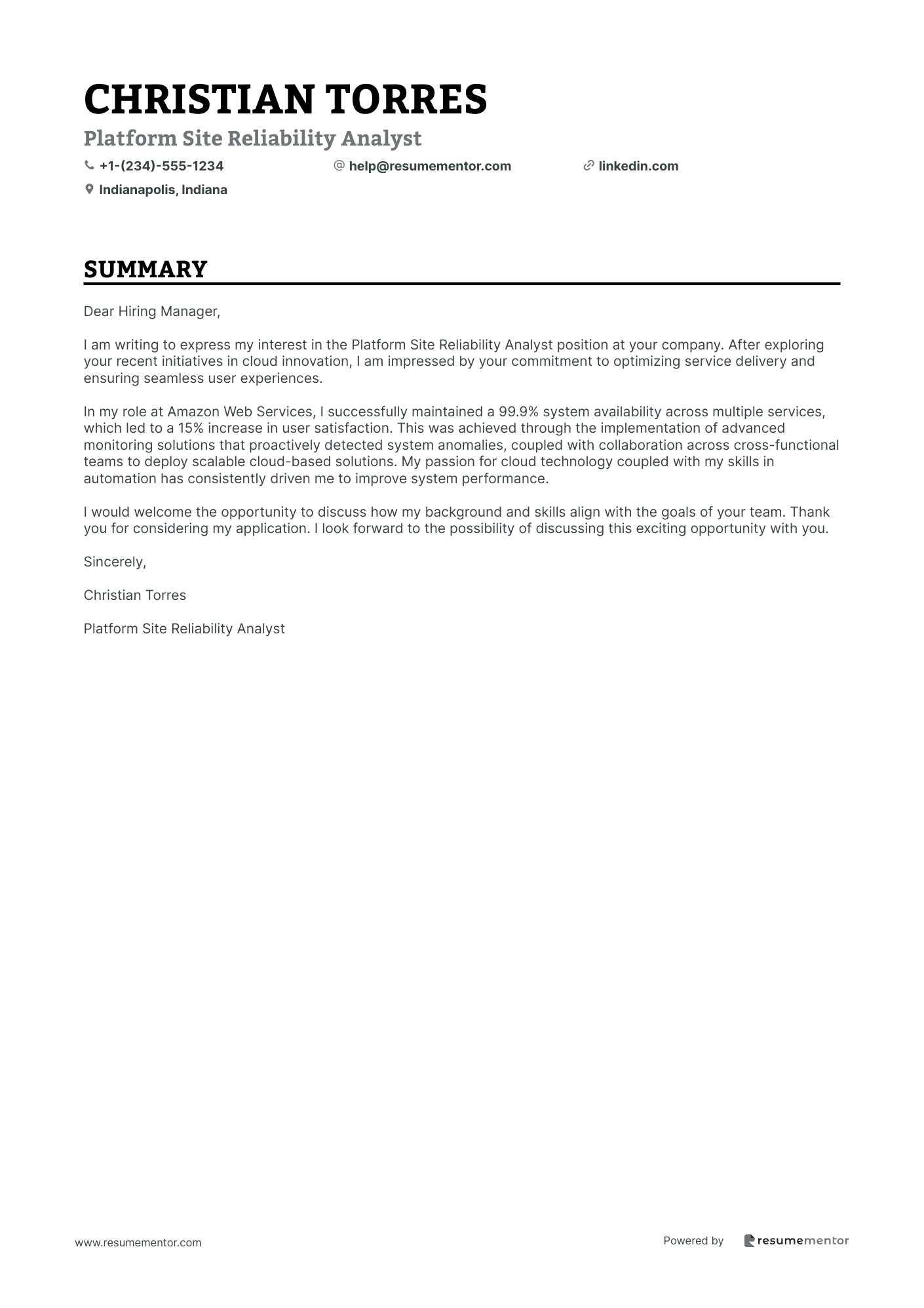
Platform Site Reliability Analyst
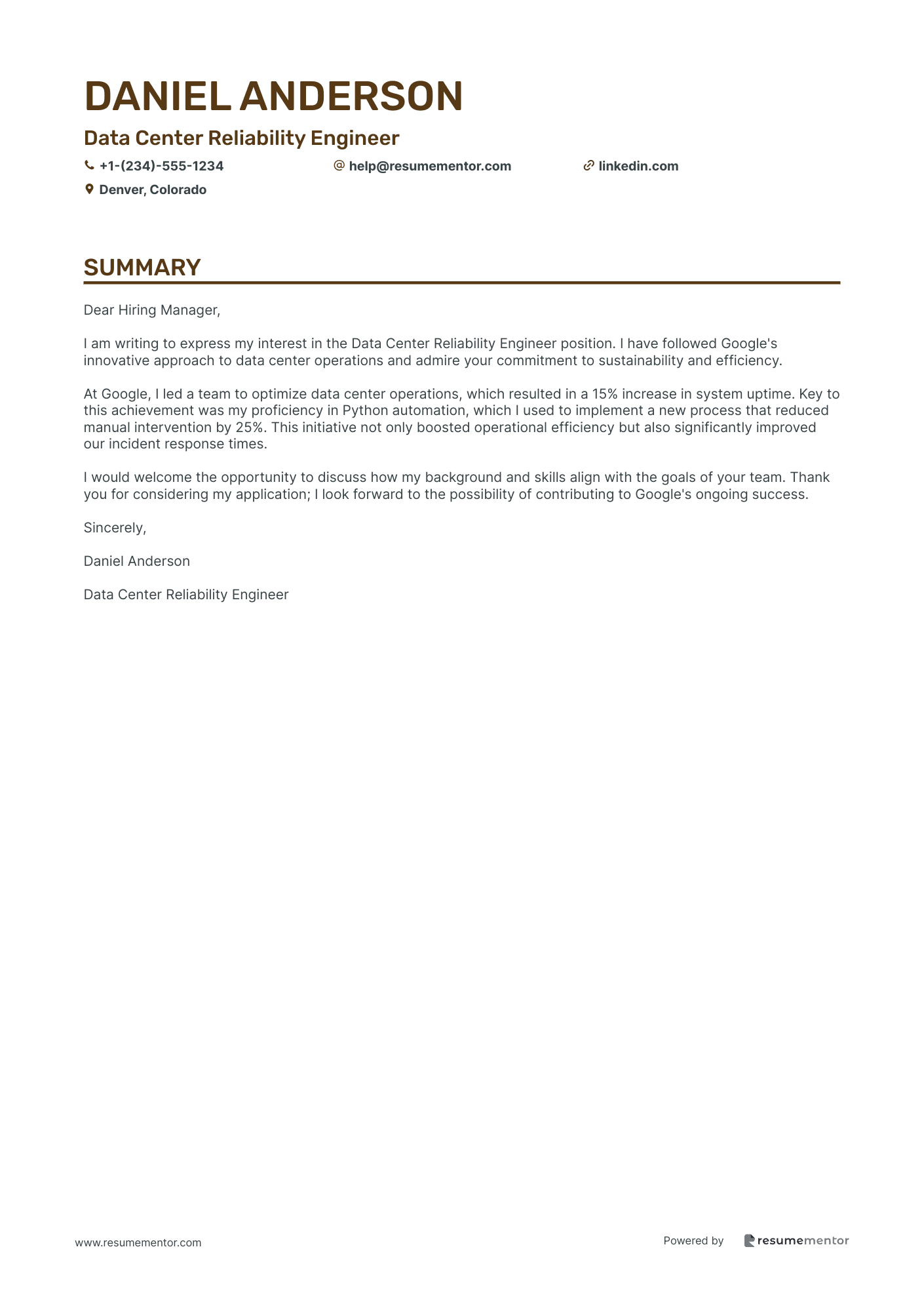
Data Center Reliability Engineer
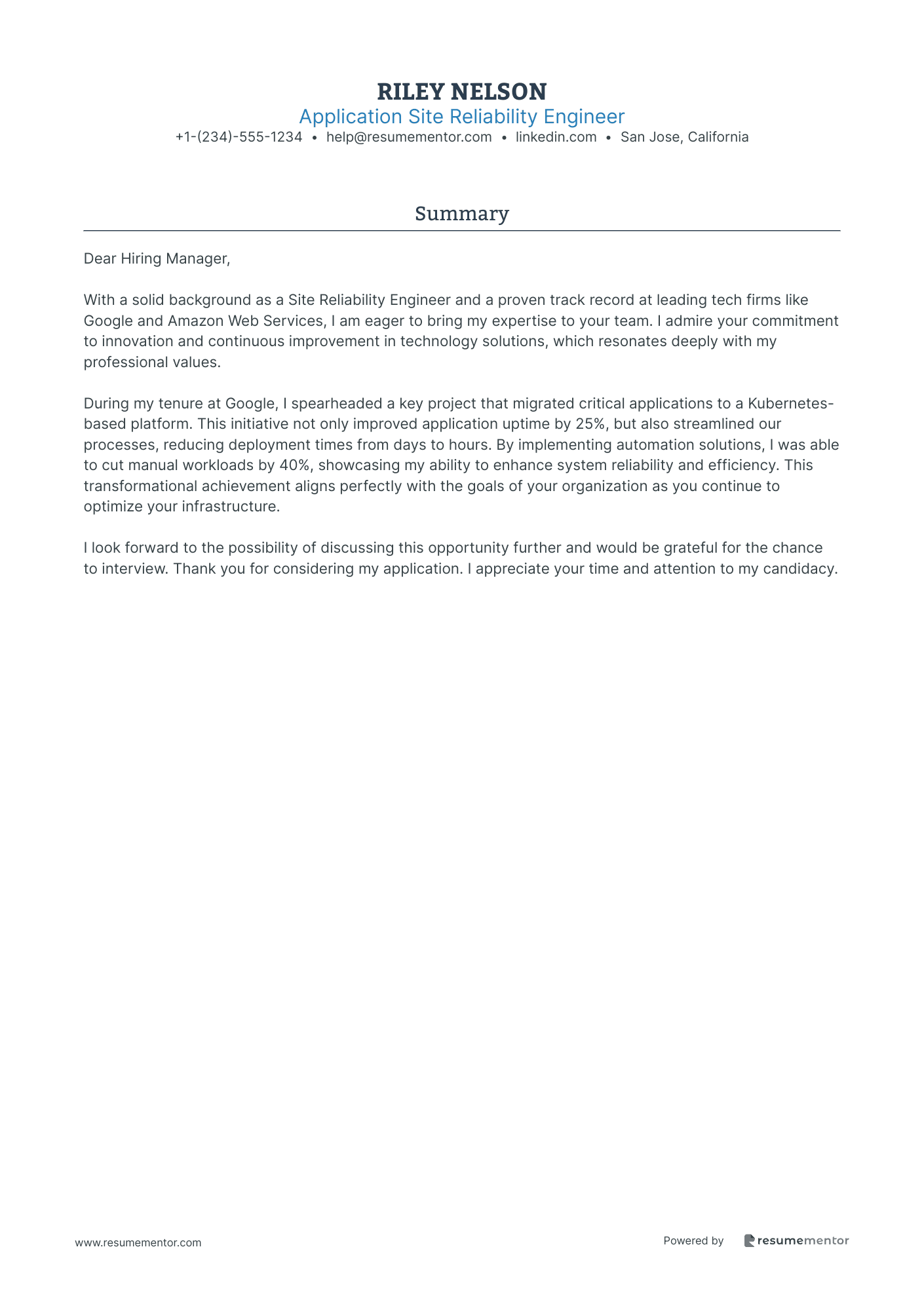
Application Site Reliability Engineer
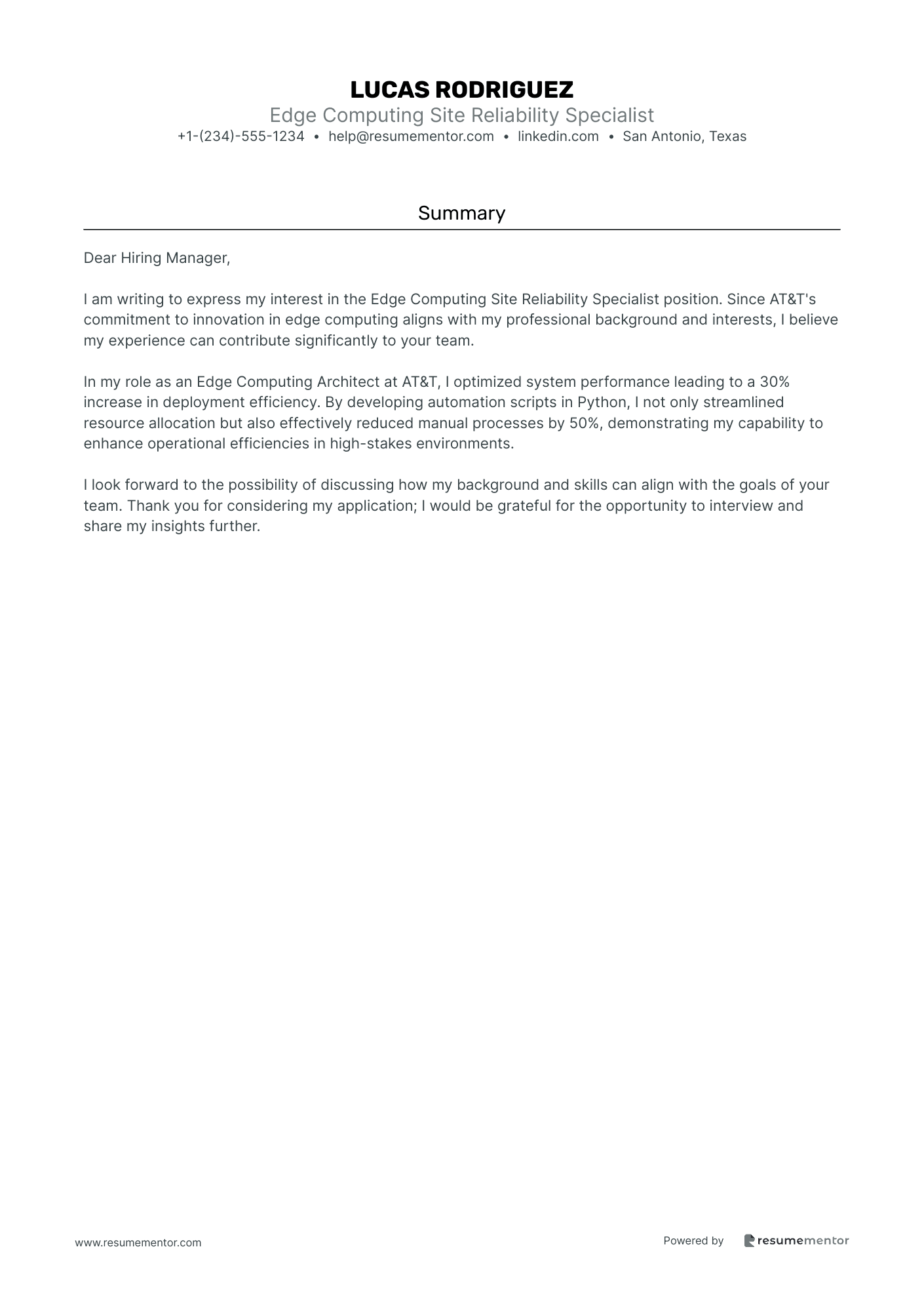
Edge Computing Site Reliability Specialist
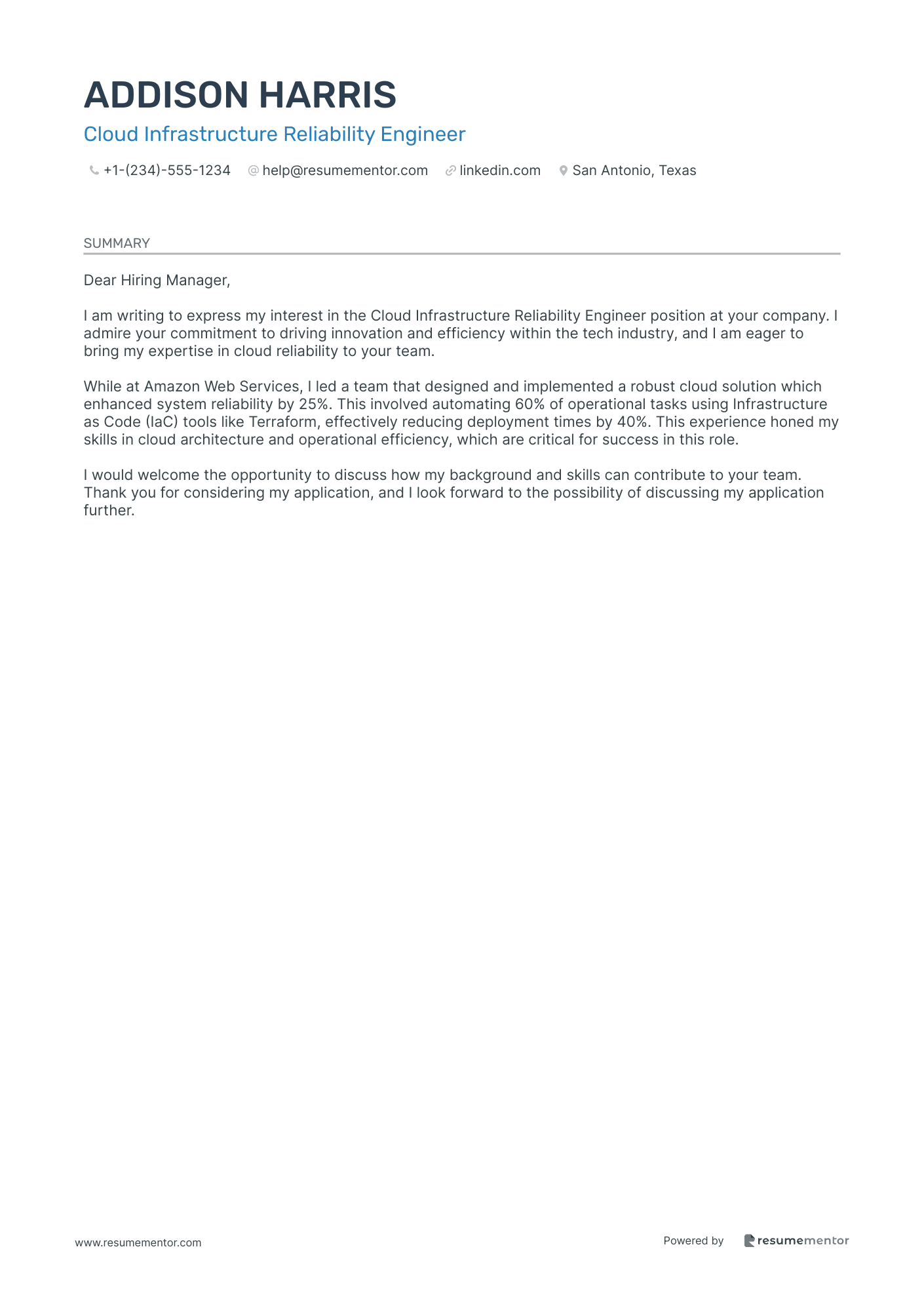
Cloud Infrastructure Reliability Engineer

Database Site Reliability Specialist cover letter sample
DevOps Site Reliability Engineer cover letter sample
Network Reliability Engineer cover letter sample
Software Site Reliability Expert cover letter sample
System Reliability Engineer cover letter sample
Platform Site Reliability Analyst cover letter sample
Data Center Reliability Engineer cover letter sample
Application Site Reliability Engineer cover letter sample
Edge Computing Site Reliability Specialist cover letter sample
Cloud Infrastructure Reliability Engineer cover letter sample
Related Articles

Continue Reading
Check more recommended readings to get the job of your dreams.
Resume
Resources
Tools
© 2026. All rights reserved.
Made with love by people who care.
